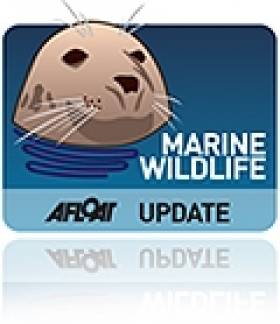Displaying items by tag: Japanese Sea Squirt
Invasive 'Marine Vomit' Spreading In Galway Bay
#InvasiveSpecies - The invasive Japanese sea squirt - also known as 'marine vomit' - is spreading extensively in the south of Galway Bay, a marine scientist tells The Irish Times.
As previously reported on Afloat.ie, the Japanese sea squirt (Didemnum vexillum) spreads like a blanket across the seabed and other surfaces, smothering shellfish and other marine life in the process.
It is often transported over large distances on boat hulls and fishing equipment.
Two years ago signs of the highly damaging species were detected in Strangford Lough, following work in North Wales to prevent its spread into the lucrative shellfish waters of the Menai Strait.
Sea squirts were first detected in small amounts in Galway Bay seven years ago, says marine biologist Dr Julia Nunn.
But their present abundance at the shore near Ballindereeen in Co Galway could pose a threat to shellfish farming and spawning beds or scallops and herring in the area.
The Irish Times has much more on the story HERE.
In related news, Inland Fisheries Ireland (IFI) joined Canoeing Ireland to launch invasive species disinfection guidelines for paddle sports enthusiasts like canoeists and kayakers.
IFI says paddle sports watercraft and associated equipment are known to facilitate the introduction and spread of environmentally damaging invasive species like Asian clam and fish pathogens such as salmon fluke (which has not yet been recorded in Ireland).
These may be carried from one water body to another as hull-fouling organisms in bilge water, or entangled in equipment exposed to the water.
The complete guidelines are available to download HERE.






























































